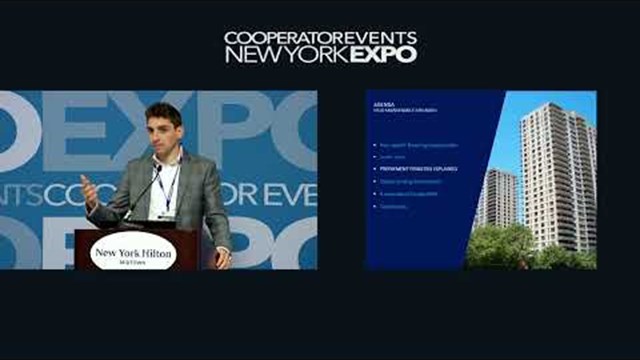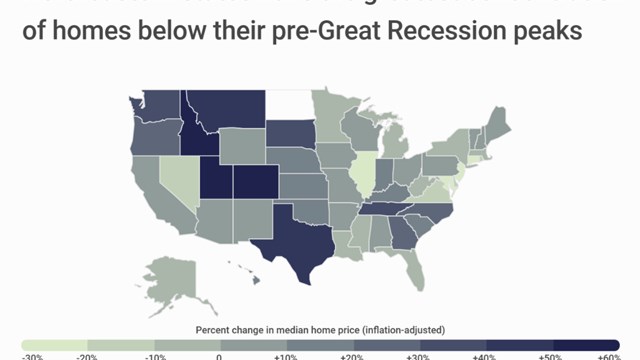
Consider the following all-too-common scenario: your condominium association has one delinquent unit owner who owes three months of common charges totaling $915.00 before late fees. Statements have been sent without response, and telephone calls are not being answered. If you're like most buildings, your operating expenses hinge on reliable cash inflow from owners' fees every month—and that $915.00 is being sorely missed. What steps can your building take to collect this debt?
When an owner has ceased making common charge payments for at least 90 days and fails to respond to the board's initial communication efforts, it's important to ensure proper management of the account while the balance is still fairly low. The first step is to refer the matter to the building's legal counsel. Your counsel’s objective in assisting the condo at this point is two-fold: First, to take the necessary steps to recover the amounts past due as quickly as possible, and second, to get the owners to begin paying again—or if not, to get new occupants into the unit who will make the payments.
Initial Notice
After counsel serves the owner(s) with the initial 30-day “Debt Notice” required by the Fair Debt Collections Practices Act, the account ledger should be evaluated to determine if there have been any payments made in response to the notice. If there are no payments made after the debt notice is served on the owners, counsel should order a title search and immediately record a lien. The purpose of recording a lien is to place an encumbrance on the unit for the unpaid common charges as well as all future unpaid common charges going forward, as long as the right to collect such future charges are noted on the face of the lien. A properly recorded lien will prevent an owner (or a second mortgage holder) to sell or foreclose upon the unit until all amounts due pursuant to the lien are paid in full.
A title should always be ordered and reviewed prior to recording a lien. This is extremely important, because a lien must be recorded against the proper title owner(s) in order to be effective. Note that unit occupants may not necessarily be title owners. A title search will confirm the correct owner(s). If a lien is not recorded against the correct title owners, it is defective and will not be enforceable against the unit.
A title search will also reveal other lienholders on the unit. Although a condominium lien does not hold priority over a first mortgagee’s interest, it is still important to record the lien to secure the right to collect the unpaid common charges prior to all other lienholders and as against the owner in the event of a sale or bankruptcy filing. A condominium is not required by law to serve lienholders with the recorded lien unless attempting to affect their interests - however it may be beneficial to do so, since it may result in monies being paid from the proceeds of a sale.
In Collection
On an important side note, once a matter has been turned over to counsel for collection, management and members of the board must stop all further communications with the owners. The reason for this is because management or board members may not have the most updated record of the total amounts due, if all the related legal fees have not been posted to the account. To avoid such inconsistencies after the turnover of a debt to counsel, attorneys should be the only party to discuss debts with owners. In order to manage each account properly, it is also recommended that the account ledger be reviewed after every step in the collection process to ensure that only the absolute necessary steps are being taken to protect the condominium.
Once a lien is recorded, the condo should send notice of the recorded lien to the title owner(s), putting them on notice of the encumbrance—especially if it intends to enforce the lien through a foreclosure. If, after ten days of serving the lien, there is still no response from the owner(s), and provided the debt is still somewhat low, the next step to consider is to bring a small claims lawsuit seeking a personal money judgment. A personal money judgment serves a different purpose than the recording of a lien. As stated earlier, a lien affects a property interest, whereas a money judgment affects a personal interest.
Unless a lien is foreclosed and a judgment for foreclosure sale (which could take up to two years) results, a condominium will not be able to enforce the lien by executing upon the assets of owner(s) unless and until a personal money judgment is secured and docketed with the Clerk of the County in which the action was brought. A personal small claims lawsuit must be brought in the county where at least one of the owners currently reside, which may not necessarily be the county where the unit is situated. Most court orders for judgment must be docketed before they can be executed upon. The only exception is a Supreme Court judgment, which is automatically docketed and can be enforced once the judgment is entered in the clerk’s office. Different from a foreclosure, securing a money judgment in small claims will take no more than 60 days in most cases, and will be relatively inexpensive unless the owner contests the complaint and a full trial is necessary.
Once a personal money judgment is awarded and docketed, the condo can begin to execute upon the owners’ personal assets such as wages and/or bank accounts. The method of enforcing the personal judgment will depend upon the circumstances of the particular case, and should be evaluated thoroughly before choosing the best option The condominium will need to determine the whereabouts of the owners’ assets through various on-line and local search engines such as investigation agencies. In the event the assets cannot be located through standard search vehicles, other methods can be utilized to try and locate the assets such as serving information subpoenas on the owners which can be enforced by the court, if ignored.
If after diligent effort, the board and counsel have been unable to locate any assets (which is sometimes the case), counsel should discuss whether it makes fiscal sense to continue in the execution process.
Encourage Settlement
As a final thought, there is always a possibility that an owner may want to resolve the dispute with the condominium at any stage of the collection process. Settlement should be encouraged and should be handled directly with counsel who can ensure any agreement made with an owner both commits the title owner(s) to pay back the prior debt plus associated costs, and begins making payments going forward. Counsel should also provide for an iron-clad default provision, which would entitle the condo to bypass further judicial intervention before obtaining the right to seize assets. Under no circumstances should a lien ever be released however, until all amounts are paid in full.
Stacey R. Patterson, Of Counsel, is a member of Stark & Stark’s Condominium & Co-op Group.









Leave a Comment